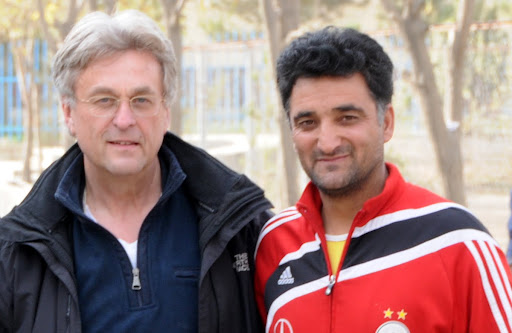Freitag, 30. November 2012
Dienstag, 27. November 2012
Sonntag, 25. November 2012
Samstag, 24. November 2012
Freitag, 23. November 2012
Regular health checks are ineffective
...The current study finds that regular health checks are ineffective. It robustly shows evidence of little effect. It remains possible that targeted health checks might offer some benefit. This study looks at health checks in well people only, and initiatives that are focused on particular population groups with identifiable risk factors and conditions could possibly be effective, but evidence of this is needed. The history of health promotion through routine health checks has been one of glorious failure, but generations of well meaning clinicians and public health physicians struggle to allow themselves to believe it. We need to reinforce the message lest some enthusiast reinvent the health check in another guise. Policy should be based on evidence of wellbeing, rather than on well meant good intentions. Mehr
Mittwoch, 7. November 2012
Development of single-port cholecystectomy: results of a case-control study matched to one surgeon
Background: Single-port laparoscopic cholecystectomy is an evolving technique which is now widely established. Up until now, the safety of the procedure and a respective learning curve have not been adequately reported in most studies. The aim of this study was to demonstrate that single-port cholecystectomy is a safe procedure, with a positive learning curve from a case-control study matched to one surgeon.
Methods: One hundred single-port cholecystectomies performed by one surgeon (AB) were retrospectively matched to 100 patients who underwent conventional laparoscopic cholecystectomy carried out by the same surgeon. The two groups were matched in respect of surgical indication, gender, age, and body mass index. The groups were compared with respect to operation time, use of additional trocars, analgesics required in the post anesthesia care unit, postoperative complications, and duration of hospital stay.
Results: No significant difference was found between the two groups with respect to postoperative complications and stay in hospital. The operation time increased slightly in the single-port group. Directly after the operation, the analgesic use required in the post anesthesia care unit was higher in the single-port group. Consumption of analgesics on the surgical ward was very similar in each group. In respect to the learning curve, the operation time and use of additional trocars showed a positive trend, starting with the thirtieth operation.
Conclusion: Single-port cholecystectomy is a feasible and safe procedure in a specialist setting. The procedure can be done under the same safety rules as those for conventional laparoscopic cholecystectomy. Considering the learning curve, starting with the thirtieth operation, a positive trend was seen. Long-term studies will be needed to establish the incidence and rate of incisional hernias.
Mehr
Methods: One hundred single-port cholecystectomies performed by one surgeon (AB) were retrospectively matched to 100 patients who underwent conventional laparoscopic cholecystectomy carried out by the same surgeon. The two groups were matched in respect of surgical indication, gender, age, and body mass index. The groups were compared with respect to operation time, use of additional trocars, analgesics required in the post anesthesia care unit, postoperative complications, and duration of hospital stay.
Results: No significant difference was found between the two groups with respect to postoperative complications and stay in hospital. The operation time increased slightly in the single-port group. Directly after the operation, the analgesic use required in the post anesthesia care unit was higher in the single-port group. Consumption of analgesics on the surgical ward was very similar in each group. In respect to the learning curve, the operation time and use of additional trocars showed a positive trend, starting with the thirtieth operation.
Conclusion: Single-port cholecystectomy is a feasible and safe procedure in a specialist setting. The procedure can be done under the same safety rules as those for conventional laparoscopic cholecystectomy. Considering the learning curve, starting with the thirtieth operation, a positive trend was seen. Long-term studies will be needed to establish the incidence and rate of incisional hernias.
Mehr
Dienstag, 6. November 2012
Freitag, 2. November 2012
Donnerstag, 1. November 2012
“What doctors don’t know about the drugs they prescribe”
One of the most popular videos on TED.com is a mini-lecture by the writer, doctor, and academic Ben Goldacre, called “What doctors don’t know about the drugs they prescribe” (http://tinyurl.com/9y8chac). In the video, Goldacre (whose latest book, Bad Pharma, does much to expose the damage caused by withheld and misreported data from clinical trials) says that in drug trials funded by pharmaceutical companies “positive findings are around twice as likely to be published as negative findings.” Since it was posted two months ago, the video has attracted over 387 000 views. Does this suggest that the public is waking up to one of the biggest scandals in clinical research: that big pharma does not make all the clinical trial data for all drugs in current use available for independent scrutiny? Mehr
Abonnieren
Posts (Atom)











